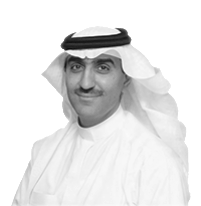It gives me pleasure to pencil a few words on the occasion of publishing this work and explain the reasons why Healthcare Development Holding, which I led decided to sponsor this project.
Having studied and practiced in the US and now being a practicing physician while at the same time leading a healthcare company in Saudi Arabia, I became aware of two important issues:
• The first is that many of my physician colleagues today are not familiar with the development of medical practice within Muslim culture.
• The second is that there is lack of awareness of an important ethos that dominated the healthcare environment in Muslim civilisation.
I learnt that there was a period in Muslim civilisation when many contributions were made in healthcare. These included issues, which are central to our company’s activities and ethos, such as: preserving health (Health Education and Preventative Medicine) and restoring health (General Health services and Hospital Health services).
Influenced by our day to day activities, we at HDH, are interested in finding out the historical development in areas such as: General Medical care, Care for the sick child, Care for the pregnant women and the newborn, Care for the elderly and the disabled; and Care for diseased eyes and other sensitive parts of the human body.
As hospital builders and managers, we are interested in learning about the historical development of:
• General hospitals, Teaching hospitals, Mobile Hospitals (Military, Rural health, Prisons),
• Nurses and Nursing, and
• The Role of the State and Waqf (Charity) institu- tions in financing and regulating.
Driven by our daily activities as physicians and care providers, we notice the need for an ethos that resonates with the traditional and cultural values of the patients. Thus, we feel there is benefit in bringing out the concept of Mercy, which seems to have dominated the atmosphere of the medical communities in Mus- lim societies, but which is now being eroded under the pressure of market forces.
For Muslims, Prophet Muhammed (PBUH) was and still is the role model for merciful behavior and uni- versal service. This is enunciated by the Quran:
“We (Allah) have not sent you except as a mercy for all mankind” (Quran 21:107).
The virtue of mercy is exemplified by the following verse from the Quran: “ … and whoever saves a life, it shall be as if he had saved all mankind …” (Quran 5:32)
So, it is no surprise that Mercy became a culture, a responsibility and a momentum for improving the lives of people in all aspects. Physicians and scientists now flourished within a community that recognized their importance not just to their contribution, but more importantly as an obligation of faith to improve the civil hood of mankind.
Affected by the multi-cultural and ethnic background of the patients we deal with, we note the need to enhance social cohesion and inter-cultural respect. There is no better field than the history of medicine to demonstrate the convivial atmosphere that prevailed in Muslim civilisation. As we see in this book those physicians were a mix of various faiths and cultures.
The above were the main incentives behind our willingness to sponsor research in the history of medicine and in particular, the 1001 Cures initiative.
We are delighted to see a galaxy of modern historians of medicine document some of the important contri- butions by Physicians from the Muslim civilisation.
The effort of developing this book came from the spirit of one of my favourite sayings of Prophet Muhammed (PBUH): “Once humans are dead, rewards for them cease except for three things: charitable endowment that out-survives them, knowledge that still benefits people after they die, and good offspring that remembers them in their prayers”.
The HDH Board and Staff share with me gratitude and appreciation to FSTC for publishing this book, to Professor Peter Pormann who assembled an excellent team of authors and edited the book, to the 1001 Inventions team who are managing the production of a touring exhibition entitled 1001 Cures to which this book will serve as a companion and last but not least, to Dr Tarik Fadaak and Dr Ahmed Nabeel Abo-Khatwa who reviewed the book on behalf of HDH.
Dr. Wael Kaawach
Chief Executive Officer Healthcare Development Holding

